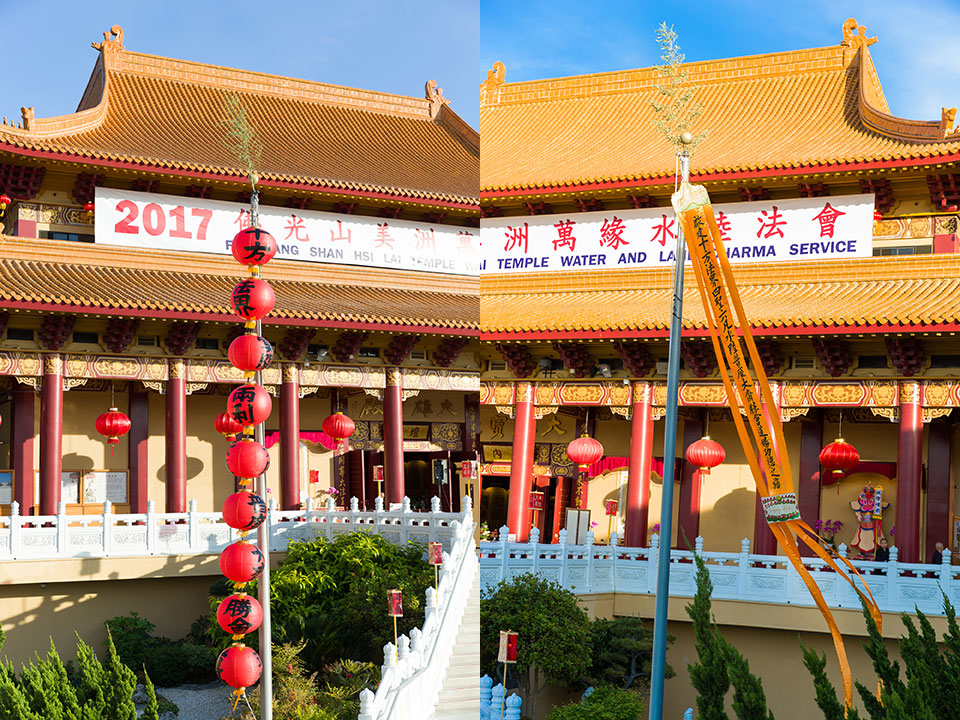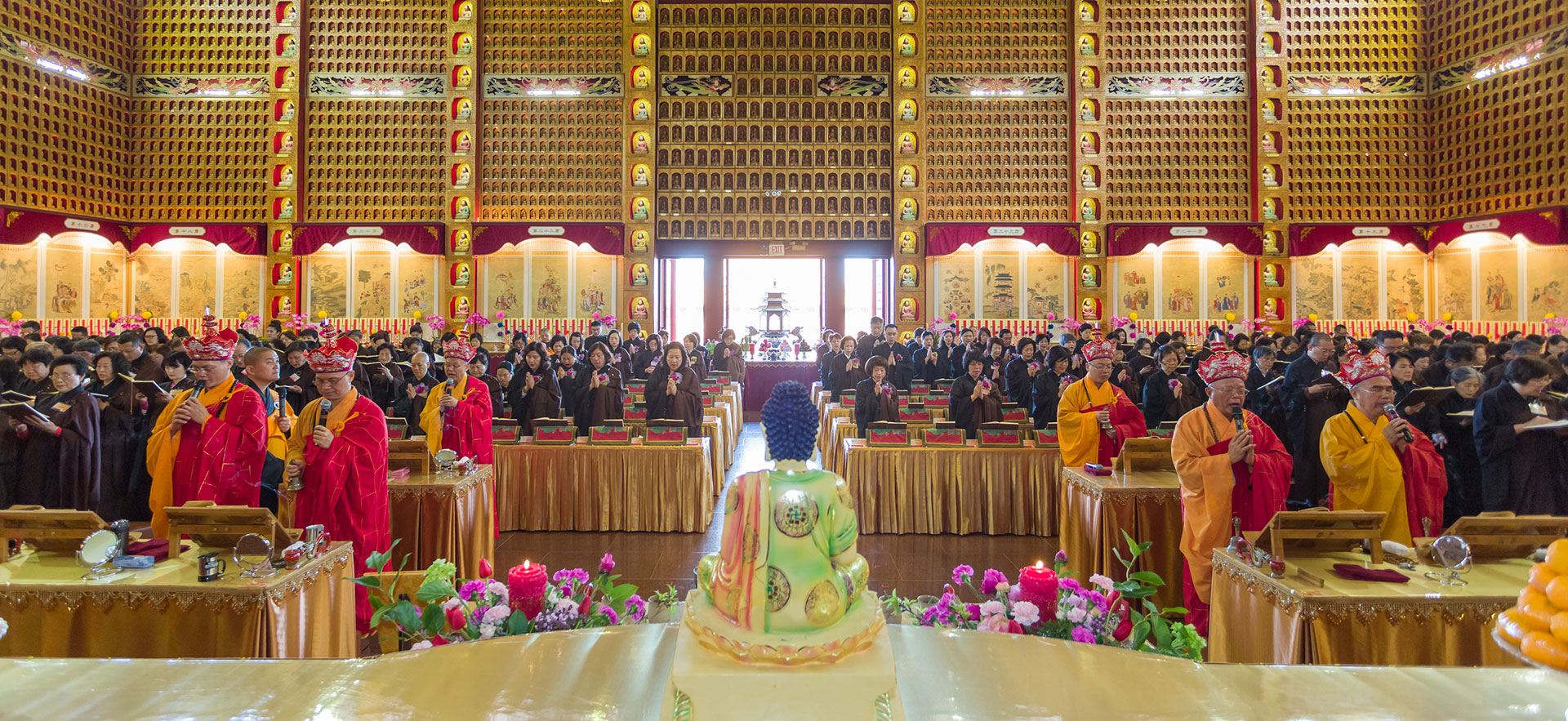The Water and Land Liturgy, which compiles and honors the essence of the twelve divisions of the Buddhist canon, is considered the king of the Buddhist methods for repentance and liberating beings. It gathers the causes for liberation in order to aid and benefit both the living and deceased. The merits and virtues of liberation are truly inconceivable.
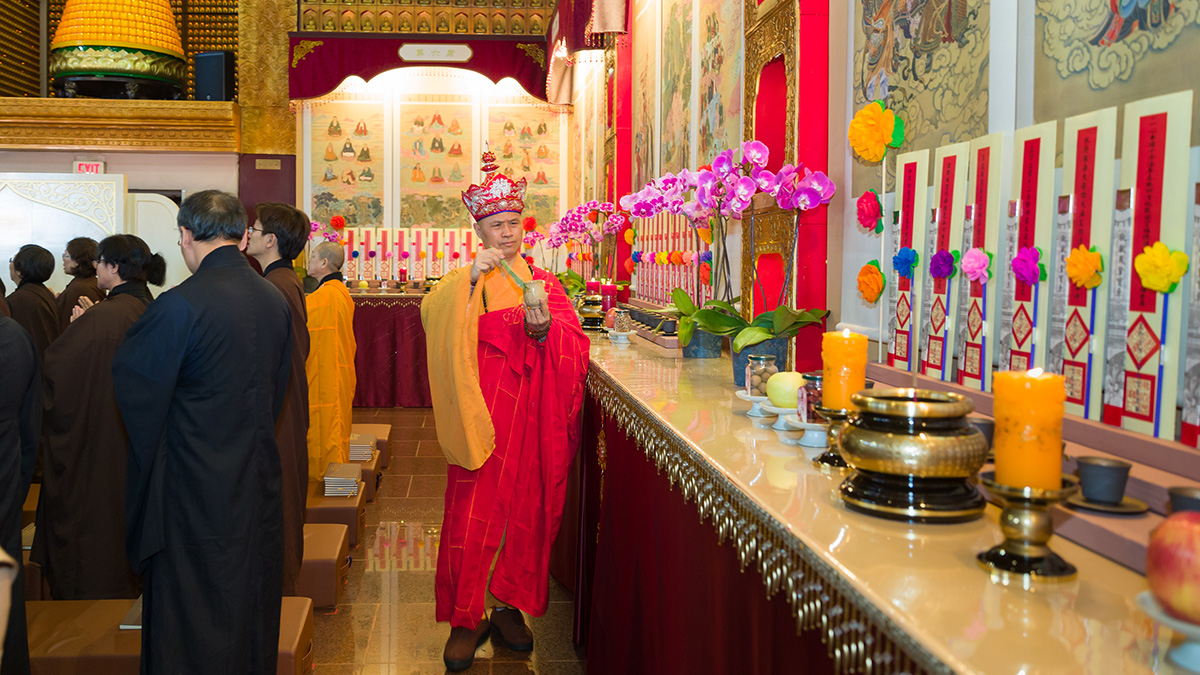
Securing the Boundaries and Purification
By purifying both inside and outside of the platform, the assembly respectfully invites the buddhas and bodhisattvas to descend upon the sanctuary.
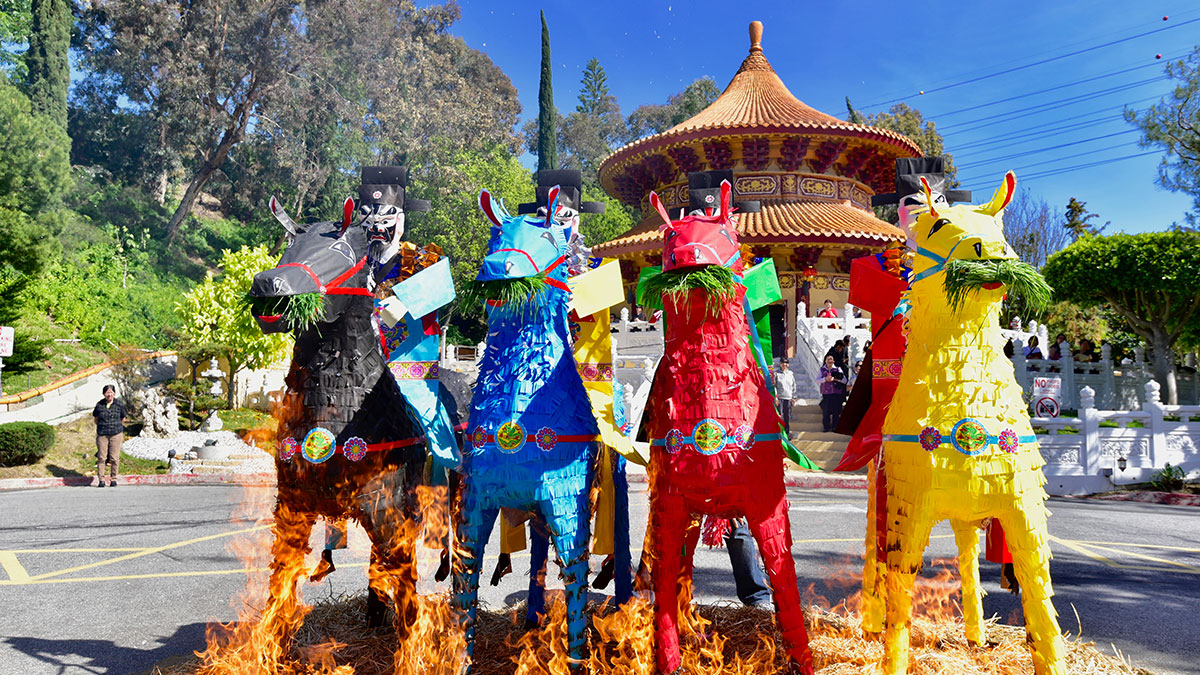
Sending Invitations and Raising the Banner
The Four Messengers who internally cultivate the practices of a bodhisattva while externally manifesting the appearance of a spirit king bring the certificates and proclamations to the heavens, space, earth, and the netherworld to summon or invite various deities. Then, there is the raising of the treasured banner which reads “The Banner for Establishing the Sanctuary of Awakening for the Grand Banquet and Supreme Assembly of the Four Sacred and Six Ordinary Beings of the Dharma Realms in the Ten Directions for the Universal Liberation of Sentient Beings from Water and Land.”
MORE MORE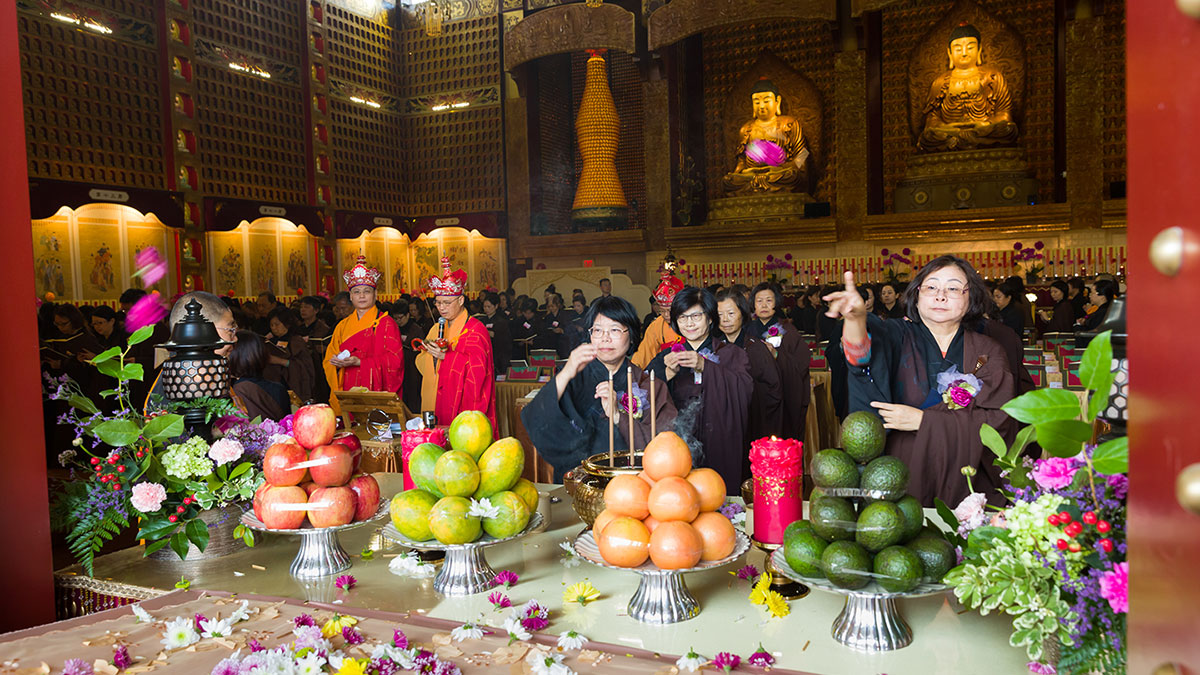
Inviting the Upper Hall
This involves respectfully inviting the buddhas, bodhisattvas, pratyekabuddhas, śrāvakas, mantra kings, brāhmin sages, and revered deities such as Brāhma and Śākra.
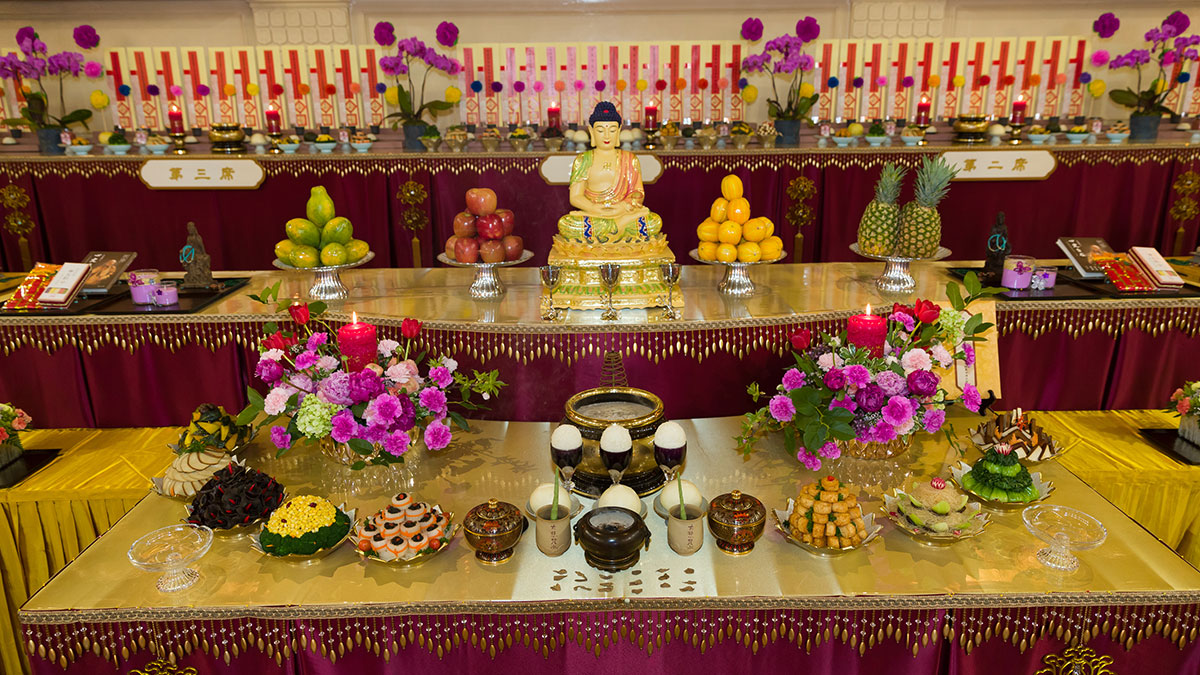
Making Offerings to the Upper Hall
This involves preparing a vegetarian banquet of delicacies and inviting the buddhas, bodhisattvas, and the awakened assembly to come to the sanctuary and accept the offerings.
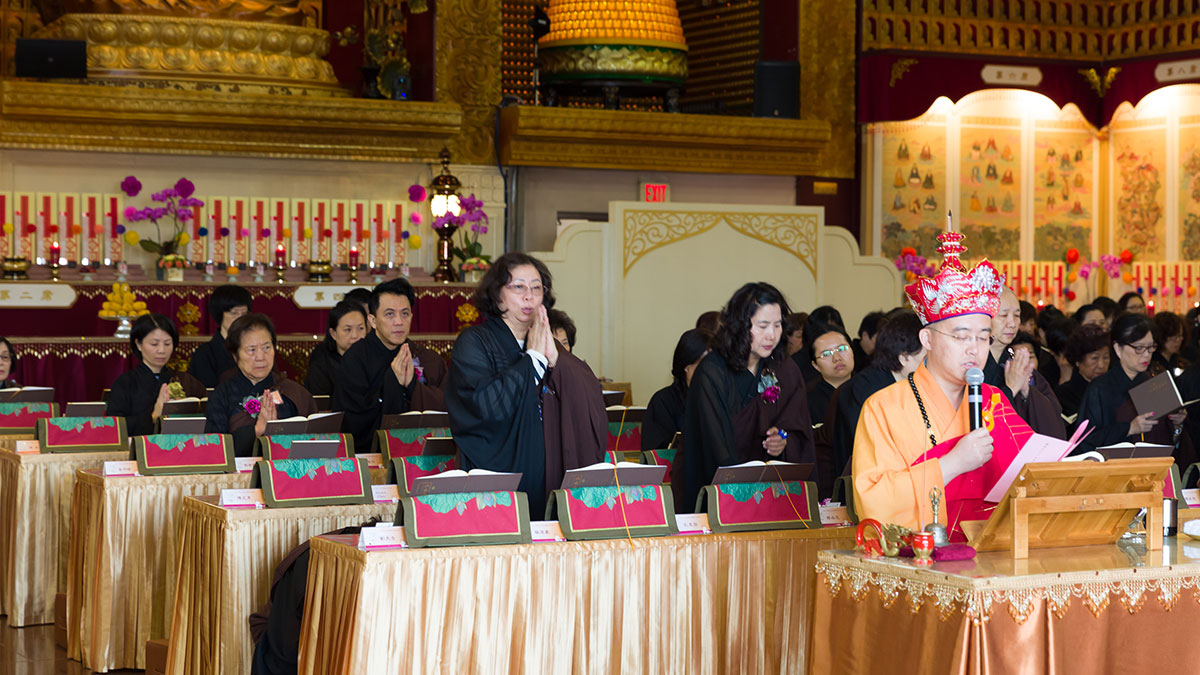
Request for Pardon
This is a prayer to Śakra and Brāhma, the two lords of the heavens, to pardon and release beings who are imprisoned in the Six Realms so that they can come to the Dharma service to listen to the Dharma, give rise to the bodhi mind, eliminate all worries, and obtain peace and bliss.
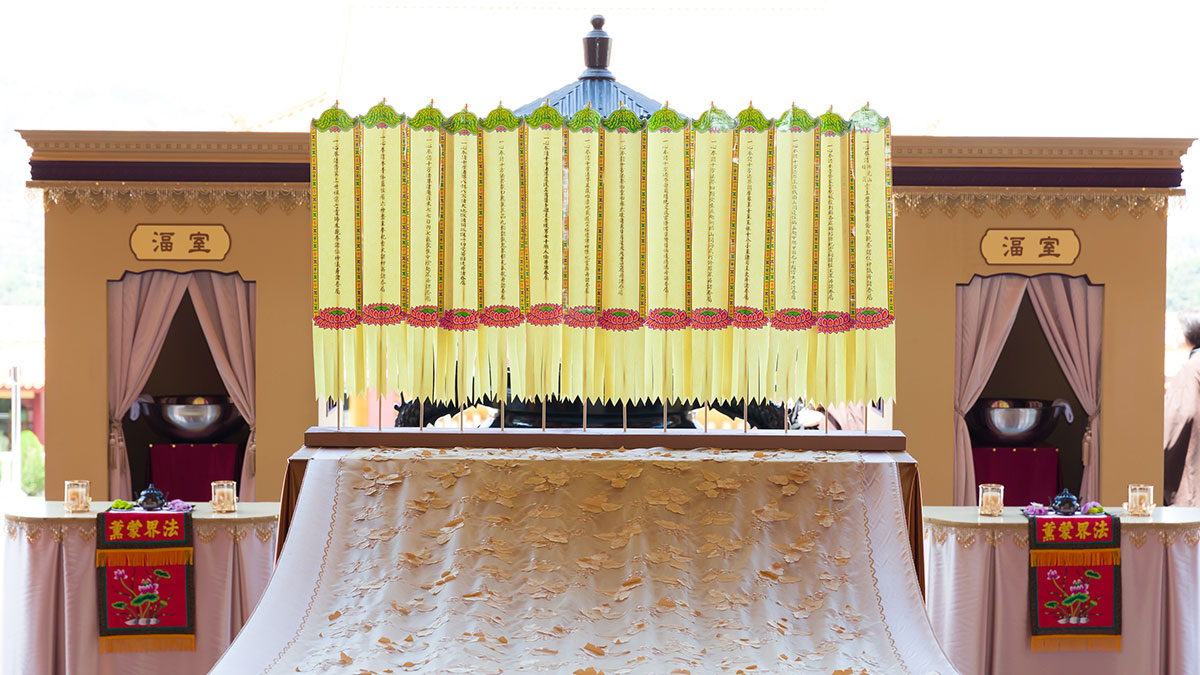
Summoning and Inviting the Lower Hall
This involves summoning and inviting the demons and spirits of the Five Mountains, rivers, oceans, and the vast earth; sentient beings in hell; ghosts and spirits who have no lord or solace; and sentient beings of the Six Ordinary Realms. They all come to receive the food and drink that possesses the taste of the Dharma, and they all benefit from the Dharma together.
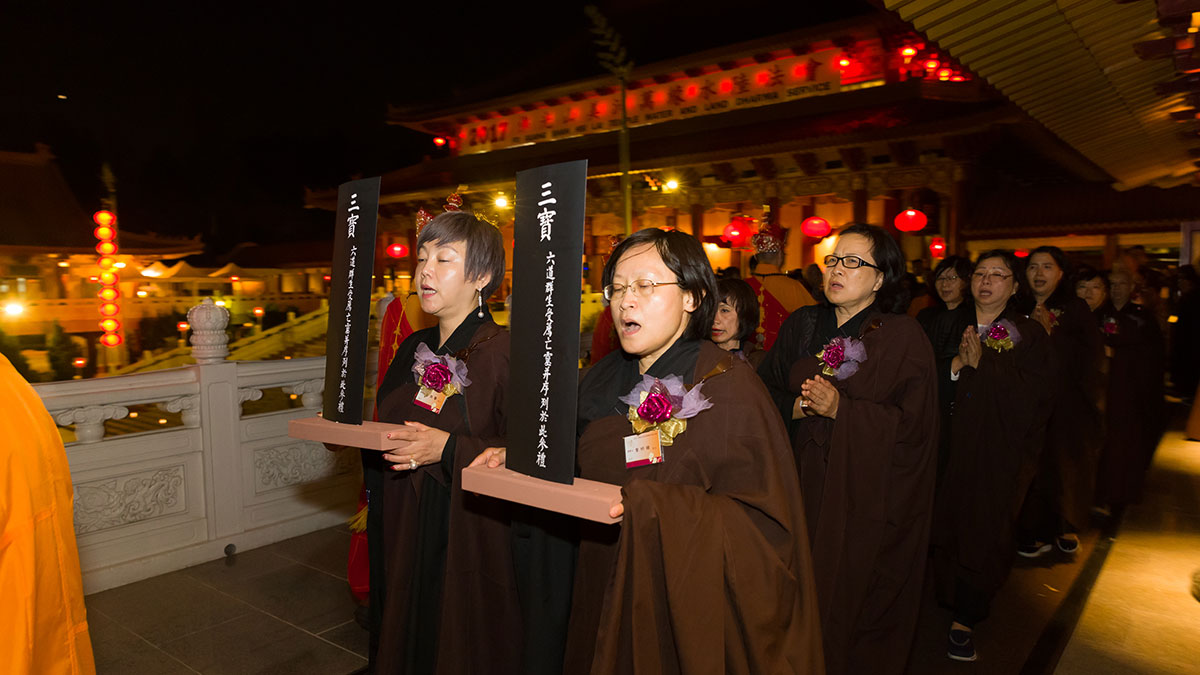
Conferring Precepts to the Deceased
This guides deceased spirits in repenting and reforming the unwholesome karma they have committed in the past, making vows to change their mistakes and to practice wholesome deeds, and then request the teaching of precepts.
MORE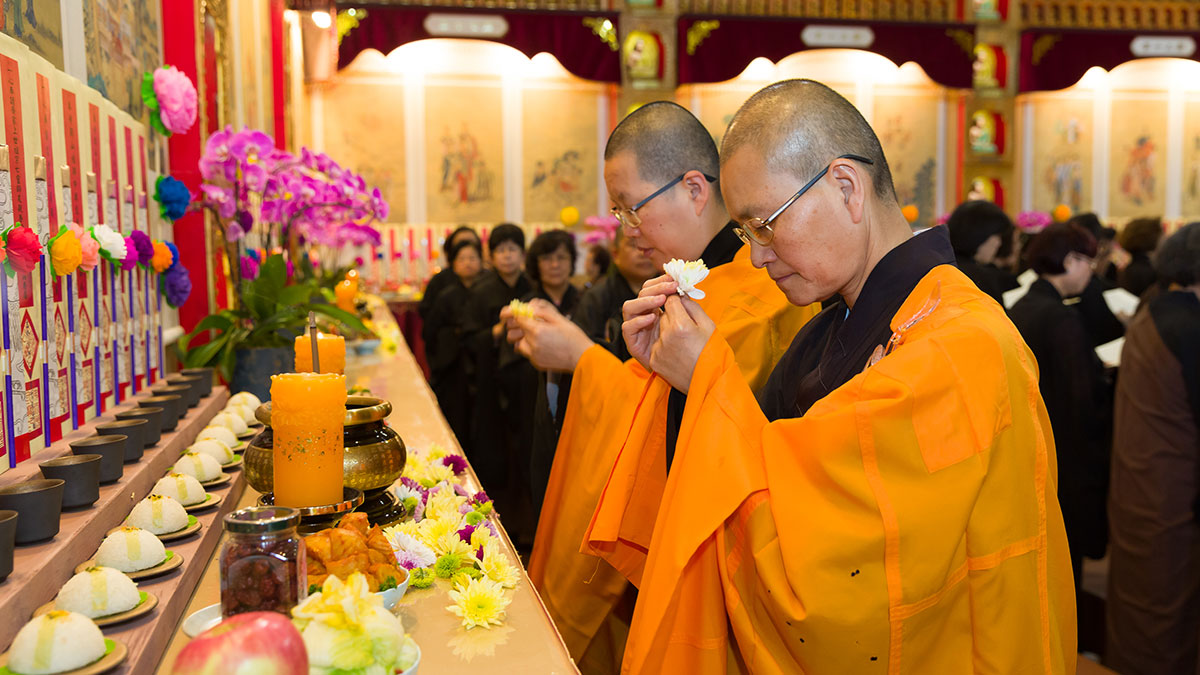
Making Offerings to the Lower Hall
This involves preparing a vegetarian banquet of delicacies as a feast to the spirits of the Six Realms. This also includes reciting the Amitābha Sūtra and reciting the Buddha’s name on their behalf so that they are reborn in the Western Pure Land.
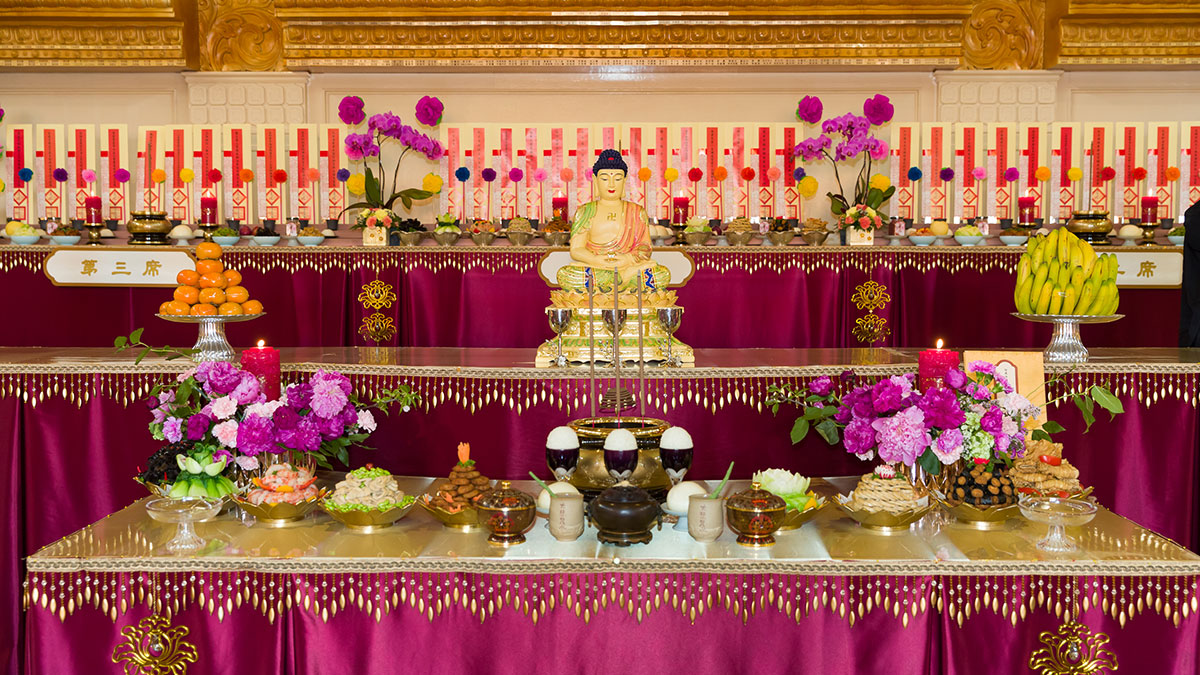
Final Offering
This involves preparing a vegetarian banquet of delicacies as a universal offering to the beings of the Four Sacred and Six Ordinary Realms.
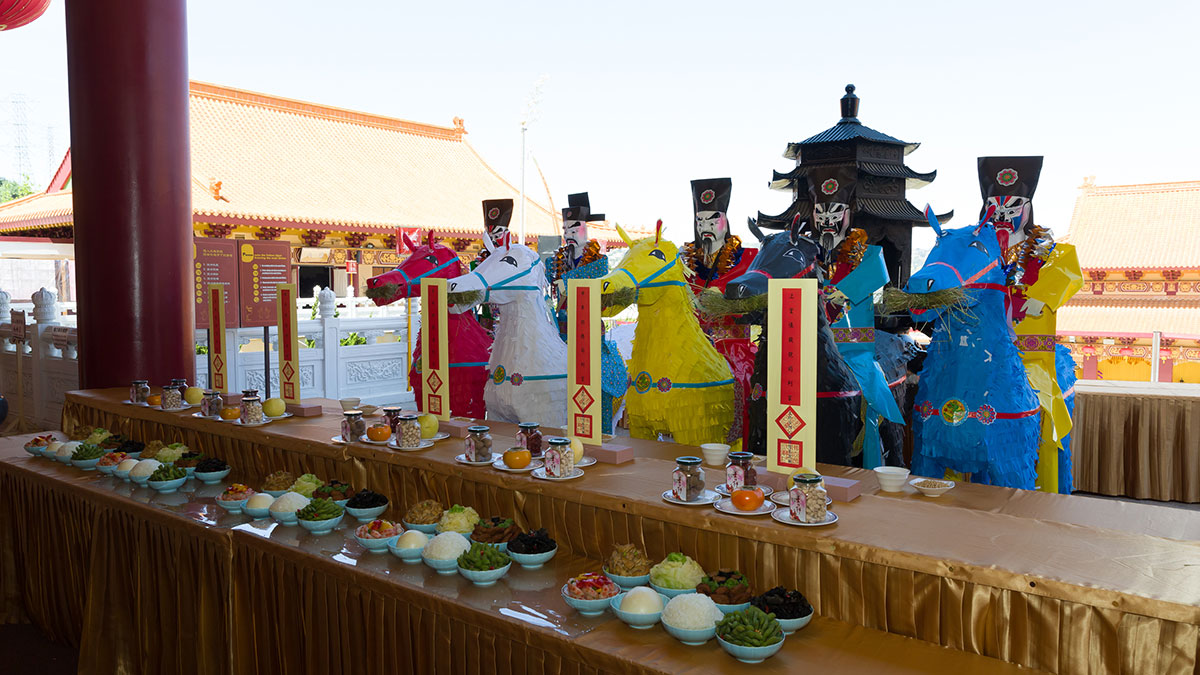
Final Session
This invites the spirits of the Six Realms to repent and reform their karmic causes as well as recite the Buddha’s name to seek rebirth in the Pure Land.
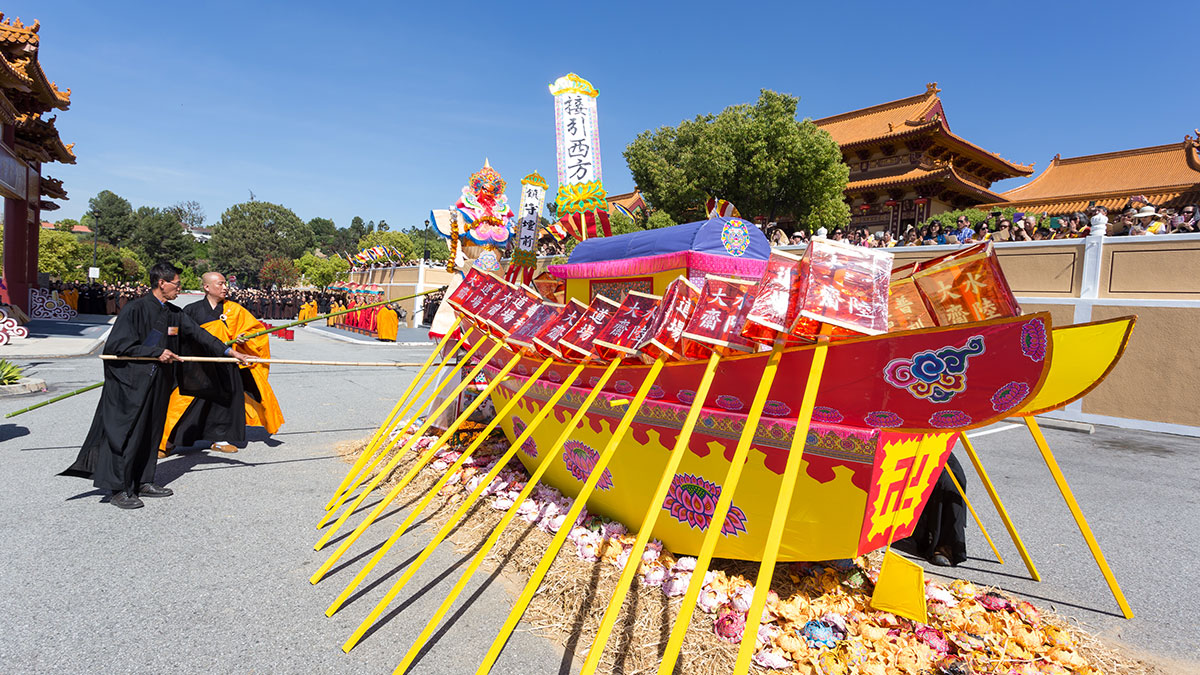
Sending Off the Sacred Assembly
The merits and virtues of the Buddhist service is complete, and this involves respectfully sending the buddhas, bodhisattvas, and sagely assembly off.
Precepts for the Deceased
I. The Significance of Precepts for the Deceased
The vicious cycle of unwholesome karma causes sentient beings to tumble in the sea of suffering without any hope of relief. Without friends and relatives cultivating wholesome and meritorious deeds on their behalf, they would not have an opportunity to leave their suffering. The most crucial virtue of the Water and Land Dharma Service is that it aids these sentient beings trapped in darkness and provides them with an opportunity to accept the teachings of the Buddha. By relying on the mindful protection of the buddhas and bodhisattvas, they are able to forever leave the realms of darkness and be reborn onto wholesome paths.
The Precepts for the Deceased are precepts which are received by the spirits of the Six Realms. When living relatives wish to request precepts for the deceased on behalf of their loved ones, they must first possess deep faith and filial piety. Only then can they evoke a response from the buddhas, bodhisattvas, and virtuous sangha of the ten directions, who will descend upon the altar and witness this receiving of precepts.
Those who request the precepts on behalf of the deceased should give rise to the greatest bodhi mind and pray that all sentient beings in darkness will benefit from the Buddha’s teachings, depart from the suffering of the darkness, and be reborn onto wholesome paths. Furthermore, they must also visualize the appearances of the deceased, prostrate to the Triple Gem with utmost sincerity on behalf of the deceased, and repent karmic transgressions from beginningless time. This resonates and evokes a mind of sincerity and transcendence in both ourselves and the deceased. Together, we pray that the Triple Gem will be able to compassionately embrace, accept, and universally liberate the sentient beings in the darkness of the ten directions so that they may all benefit from the Dharma and leave their sufferings. By giving rise to this greatest bodhi mind, it is possible to have a sympathetic response and truly be able to request the precepts for the deceased on behalf of our loved ones.
Before requesting precepts for the deceased, we must first invite the buddhas and bodhisattvas of the Upper Hall to descend upon the Dharma assembly. By relying on the mindful protection of buddhas and bodhisattvas, as well as the strength of the officiant’s virtues and contemplations, it is possible to summon the sentient beings of the six realms and various kinds of solitary spirits from the Lower Hall to come and listen to the Dharma.
II. Contents of the Precepts for the Deceased
This includes two sections:
Section One: give rise to firm faith, seek refuge in the Triple Gem, repent and reform, and give rise to the bodhi mind.
Section Two: request the precepts, threefold formal action, and explain the characteristics of the ten major precepts (to not kill, not steal, not engage in sexual conduct, not lie, not consume intoxicants, not speak the faults of the fourfold assembly, not praise oneself and denigrate others, not be stingy or encourage others to be, not refuge an apology out of anger, not slander the Triple Gem).
After requesting the precepts, the threefold formal action, and explaining the characteristics of the ten major precepts, the officiant formally confers the teaching of Mahāyāna precepts onto the sentient beings of the six paths. Having received the essence of the precepts, the spirits will naturally be able to end their evil deeds and cultivate virtue. They take Buddhism as their guideline to life, and they will rely upon it for life after life. The entire Precepts for the Deceased liturgy is a strict and formal ritual in cultivation, and each section is linked to the next. If we are able to follow the liturgy and practice it according to the teachings, then not only are we able to ensure that our deceased loved ones will receive the precept essence, but all deceased beings will be able to be freed and summoned. They will also be able to seek refuge in the Triple Gem, accept the virtuous causes of the Mahāyāna precepts, transcend the suffering of transmigration, obtain eternal happiness, and plant their own conditions for liberation.
